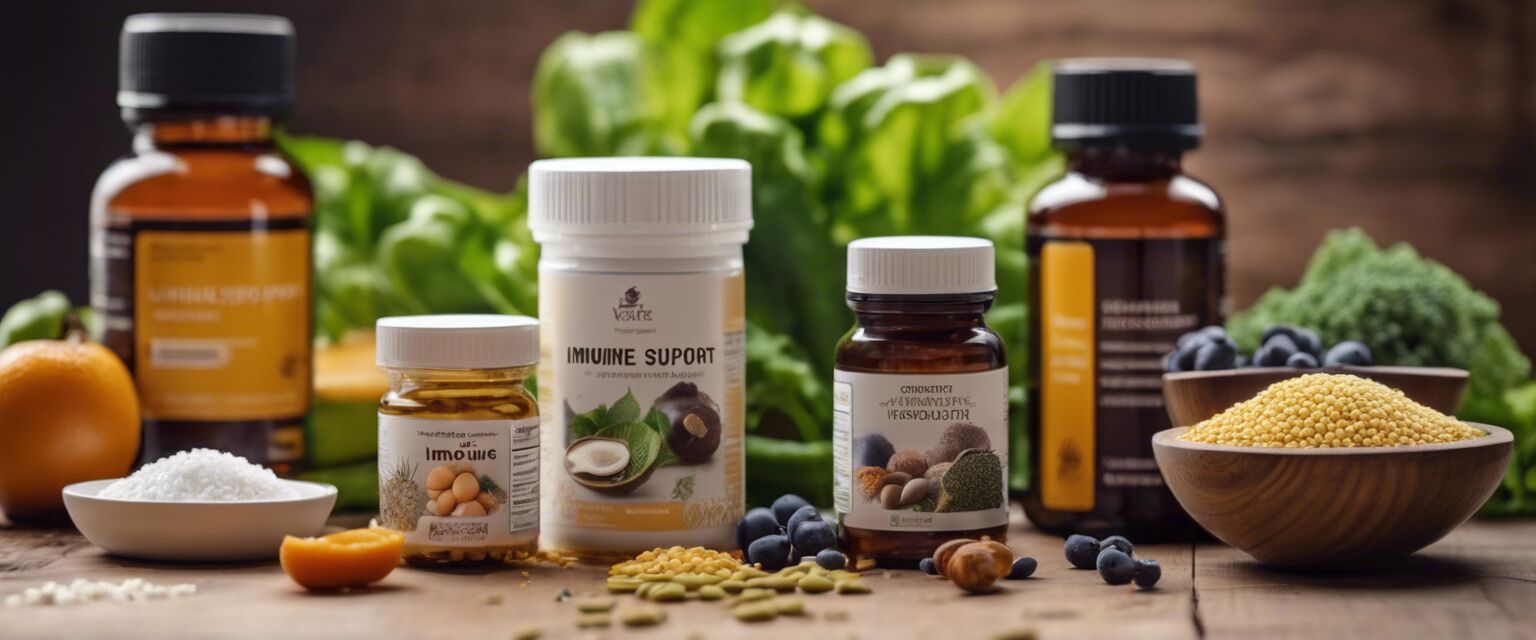
Probiotics and Immune Health
Probiotics are live microorganisms that provide numerous health benefits when consumed in adequate amounts. They play a vital role in maintaining gut health, which in turn can significantly impact immune health. This article explores how probiotics contribute to immune health and highlights the best probiotic supplements available.
Key Takeaways
- Probiotics support gut health and boost the immune system.
- Different strains of probiotics provide various health benefits.
- Probiotic supplements come in various forms, including capsules, powders, and fermented foods.
- Maintaining a balanced gut microbiome is essential for overall health.
- Consulting with a healthcare professional before starting any supplementation is recommended.
Understanding Probiotics
Probiotics are often referred to as "good" bacteria. They are live microorganisms that, when consumed, can enhance the population of beneficial bacteria in the gut. They are available in food sources like yogurt and fermented foods or as dietary supplements.
How Probiotics Work
Probiotics work by balancing the gut microbiota, which plays a critical role in the immune system. A healthy gut microbiome can prevent the growth of harmful bacteria and viruses, thus enhancing immune response.
Probiotics and Immune Health
The relationship between probiotics and immune health is well-established. Probiotics can:
- Enhance the production of antibodies
- Stimulate the activity of immune cells
- Prevent the growth of pathogenic bacteria
- Reduce the duration of respiratory infections
The Role of Gut Health
The gut is often referred to as the "second brain" due to its intricate relationship with the immune system. A balanced gut microbiome can improve the body's ability to fight off infections and maintain overall health.

Types of Probiotics
Probiotics come in various strains, each with unique properties. Some of the most common strains include:
| Probiotic Strain | Benefits |
|---|---|
| Lactobacillus | Supports digestion and may reduce lactose intolerance |
| bifidobacterium | Boosts immune function and aids in gut health |
| Saccharomyces boulardii | Helps restore gut flora during antibiotic treatment |
| Streptococcus thermophilus | Supports lactose digestion and gut health |
Choosing the Right Probiotic Supplement
With numerous probiotic supplements on the market, it can be challenging to choose the right one. Here are some factors to consider:
- Strain variety: Look for a supplement that contains multiple strains for a broader range of benefits.
- CFU count: Choose a product with a high colony-forming unit (CFU) count for effectiveness.
- Form: Probiotics are available in capsules, powders, and liquids. Choose a form that fits your lifestyle.
- Quality: Ensure the product is from a reputable brand that conducts third-party testing.
Popular Forms of Probiotics
Probiotics can be consumed in various forms, including:
| Form | Description |
|---|---|
| Capsules | Easy to take and convenient for on-the-go consumption |
| Powders | Can be mixed into beverages or foods for easy consumption |
| Fermented foods | Natural sources of probiotics, such as yogurt, kimchi, and sauerkraut |

Integrating Probiotics into Your Diet
Integrating probiotics into your daily routine can be simple. Here are some tips to help you get started:
Beginner tips for incorporating probiotics
- Start your day with a probiotic-rich yogurt or smoothie.
- Add fermented vegetables to your meals for added flavor and nutrients.
- Consider a daily probiotic supplement if you struggle to get enough from food sources.
- Experiment with different probiotic strains to find what works best for you.
Potential Side Effects
While probiotics are generally safe for most people, some may experience mild side effects, such as:
- Bloating
- Gas
- Digestive discomfort
If you experience severe side effects, consult a healthcare professional.
Conclusion
Probiotics play a crucial role in supporting immune health by promoting a balanced gut microbiome. By understanding the various types of probiotics and how to incorporate them into your diet, you can enhance your overall health and wellbeing. Always consult a healthcare professional before starting any new supplement regimen.
Pros
- Supports gut health
- Boosts the immune system
- Available in multiple forms
- Can be found in various foods
Cons
- May cause mild digestive discomfort
- Not suitable for everyone
- Quality varies among products
- Consultation with a healthcare professional recommended
Learn More
For more information on related topics, check out our other articles on:





